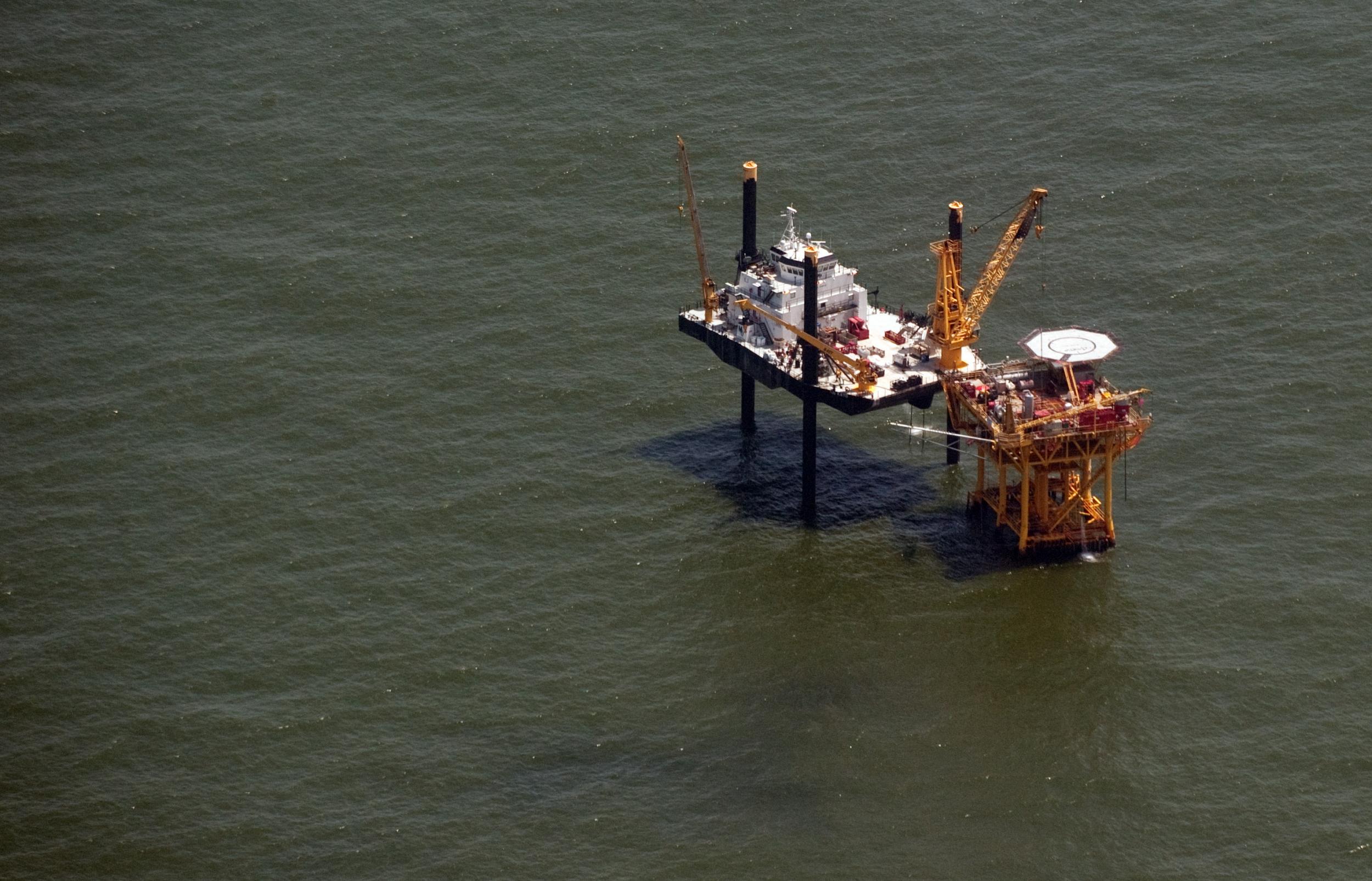Environmental groups sue Trump administration for allowing oil and gas companies to dump waste in Gulf of Mexico
The groups say that the EPA did not adequately consider how fracking waste disposal in the gulf could harm marine wildlife

Your support helps us to tell the story
From reproductive rights to climate change to Big Tech, The Independent is on the ground when the story is developing. Whether it's investigating the financials of Elon Musk's pro-Trump PAC or producing our latest documentary, 'The A Word', which shines a light on the American women fighting for reproductive rights, we know how important it is to parse out the facts from the messaging.
At such a critical moment in US history, we need reporters on the ground. Your donation allows us to keep sending journalists to speak to both sides of the story.
The Independent is trusted by Americans across the entire political spectrum. And unlike many other quality news outlets, we choose not to lock Americans out of our reporting and analysis with paywalls. We believe quality journalism should be available to everyone, paid for by those who can afford it.
Your support makes all the difference.Environmental groups are suing the Trump administration for allowing oil and gas companies to dump fracking and drilling waste into the Gulf of Mexico, saying that the permits do not take into account potential dangers to water quality.
The three groups — the Centre for Biological Diversity, the Gulf Restoration Network, and the Louisiana Bucket Brigade — filed their suit Tuesday against the Environmental Protection Agency (EPA), saying that the federal agency’s decision could have devastating effects on marine wildlife and habitats.
“The Trump administration is letting oil companies dump toxic fracking chemicals into the Gulf with no regard for the risks or the law,” Kristen Monsell, the senior attorney at the Centre for Biological Diversity, said in a statement.
“That’s just unacceptable,” she continued. “The EPA is supposed to protect water quality, not give oil companies free rein to use our oceans as their garbage disposal.”
The lawsuit is the second time those groups have sued the EPA for the permit, which was finalised in September for new and existing offshore oil and gas platforms operating in federal waters off the coasts of Mississippi, Louisiana, and Texas. The permits allow oil companies to dump unlimited amounts of waste fluid, which includes chemicals involved in fracking.
Those fracking chemicals include benzene, arsenic, lead, mercury, phenol formaldehyde resins, and hexavalent chromium.
An EPA spokesman said that the agency does not comment on ongoing litigation when reached for a statement.
The lawsuit filed Tuesday follows after another challenge to the permits filed on Endangered Species Act grounds. The gulf is home to thousands of marine species that environmentalists say could be harmed by all those chemicals, and many of which are currently being watched under the Endangered Species Act.
That includes at least 600 species of fish who live in the gulf, five of the eight species of sea turtles in the world, tens of thousands of coastal birds who live on the coast or migrate there, and more than 300 species of coral. None of that is to mention the vast natural environments for all those species that could be damaged by oil and gas waste dumping, environmentalists say.
There are at least 630 different offshore drilling wells in the Gulf of Mexico, allowed by more than 1,200 permits for companies to frack in the Gulf from 2010 to 2014, according to federal data obtained by the Centre for Biological Diversity through a Freedom of Information Act request.
Join our commenting forum
Join thought-provoking conversations, follow other Independent readers and see their replies
Comments